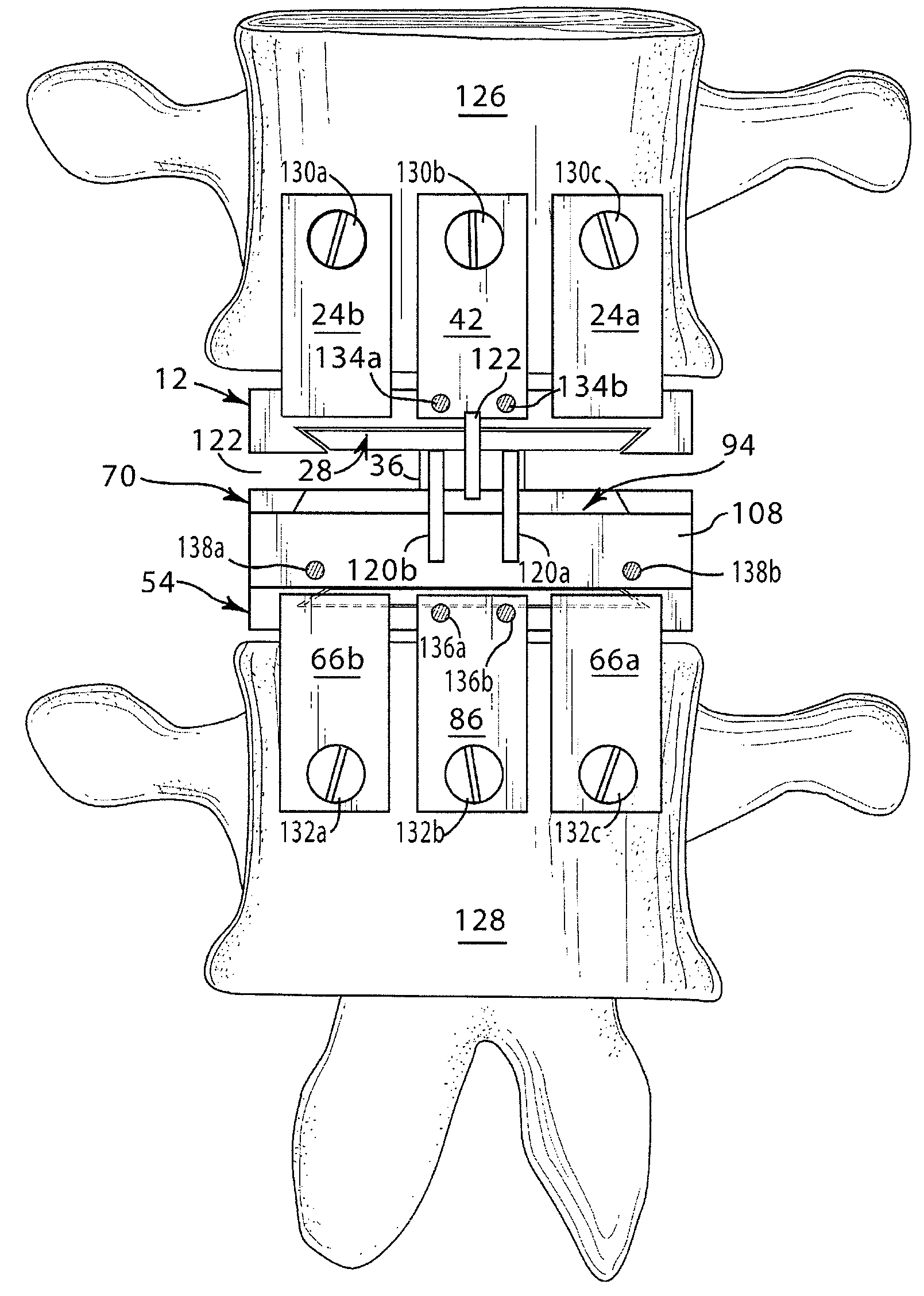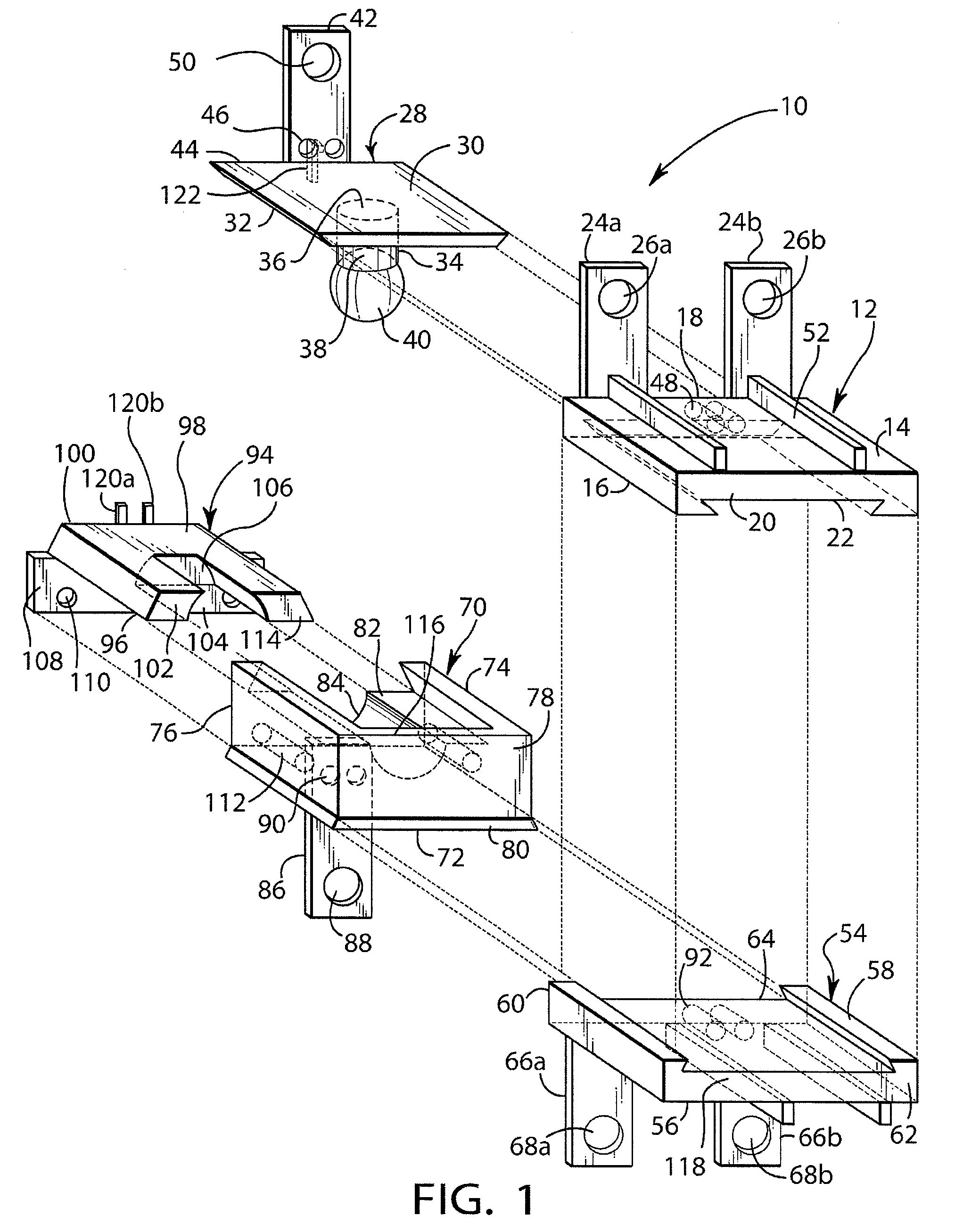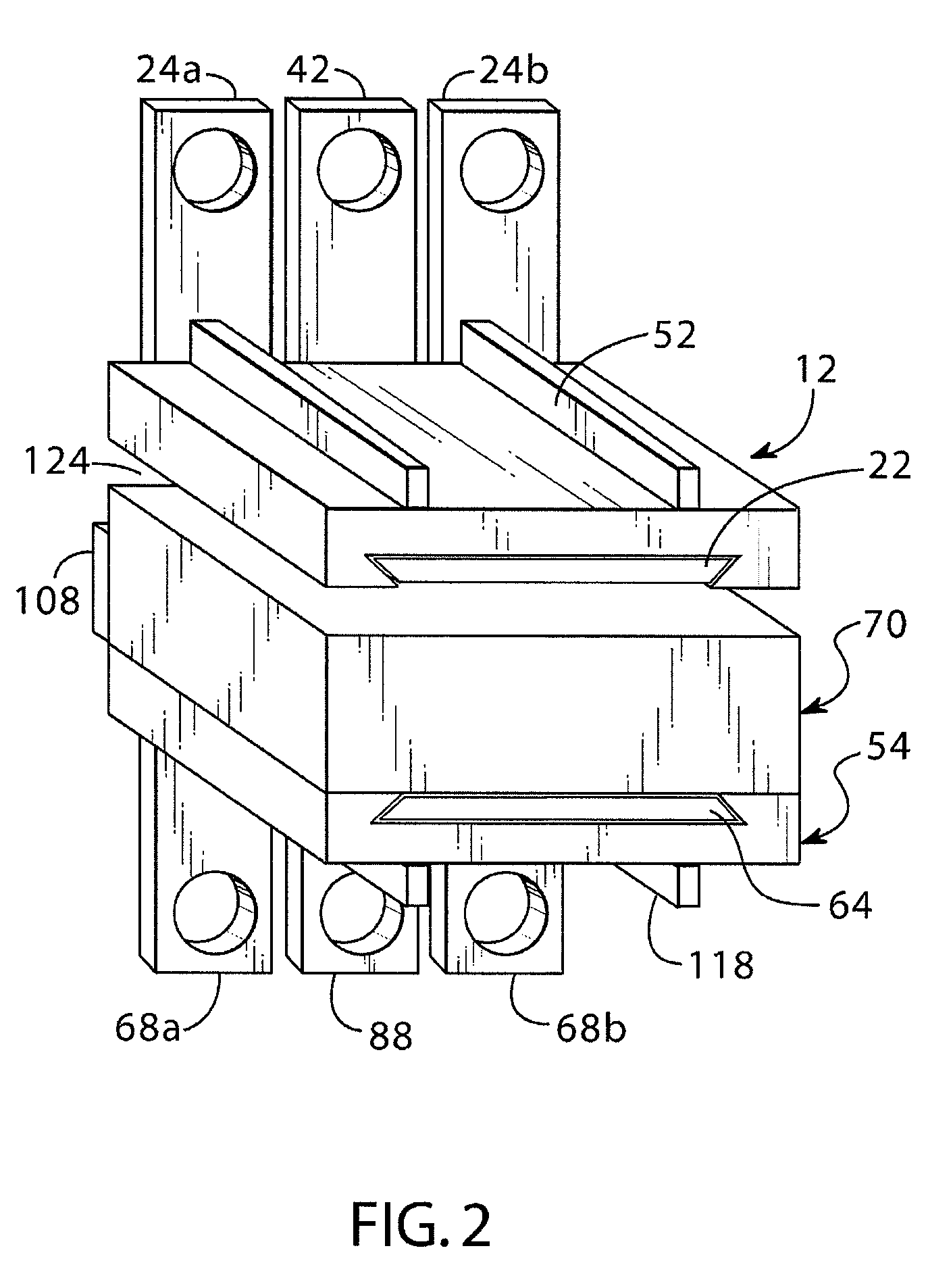Artificial spinal disk
a spinal disc and artificial technology, applied in the field of orthopedic surgery, can solve the problems of no stability of the spine in applications, no significant movement of the vertebrae involved, and the spinal musculature does little to stabilize the articulation of the facet joint,
- Summary
- Abstract
- Description
- Claims
- Application Information
AI Technical Summary
Benefits of technology
Problems solved by technology
Method used
Image
Examples
Embodiment Construction
[0027]Briefly, the present invention includes an artificial spinal implant for placement between adjacent vertebrae to replace disk material and stabilize vertebrae involved. The component parts of the implant may be assembled in the space between the vertebrae during surgery as individual components which permits each implant to be tailored to the requirements of the patient. This also permits the spine to be aligned during assembly of the components, the involved vertebrae being stabilized when the assembly is complete. The assembled implant allows controlled anterior / posterior motion of the vertebrae as well as relative rotation thereof and bending therebetween.
[0028]Reference will now be made in detail to the present embodiments of the invention, examples of which are illustrated in the accompanying drawings. In the Figures, similar structure will be identified using identical reference characters. Turning now to FIG. 1, a schematic representation of an exploded view of one embo...
PUM
 Login to View More
Login to View More Abstract
Description
Claims
Application Information
 Login to View More
Login to View More - R&D
- Intellectual Property
- Life Sciences
- Materials
- Tech Scout
- Unparalleled Data Quality
- Higher Quality Content
- 60% Fewer Hallucinations
Browse by: Latest US Patents, China's latest patents, Technical Efficacy Thesaurus, Application Domain, Technology Topic, Popular Technical Reports.
© 2025 PatSnap. All rights reserved.Legal|Privacy policy|Modern Slavery Act Transparency Statement|Sitemap|About US| Contact US: help@patsnap.com



